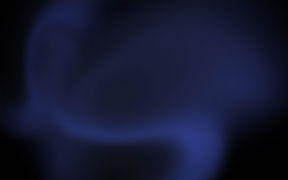

The Path Finders
The elite RAF Force that turned the tide of WW ll
Will Iredale
London, UK: WH Allen, 2021
Paperback 448pp RRP: $24.99
Reviewer: Rob Ellis, May 2023
It is true that the Royal Air Force's Bomber Command made a huge contribution to the eventual Allied victory over Nazi Germany and its allies. It is also true that Bomber Command's efforts would have been less effective had its aircrewmen not had the assistance of 8 (Pathfinder) Group's specialised navigators, pilots and other airmen, who dropped the route and target markers that enabled the Main Force bombers to reach their targets and find the correct aiming points.
Every operation these men went on was dangerous, and casualties were high. Losses on a single raid reached as high as 5 to 6% at a time when RAF High Command believed that 3% was the practical level beyond which losses were not sustainable.
Despite this, Air Marshal Harris, Air Officer Commanding Bomber Command for the greater part of the War, believed that night-time saturation bombing of Germany's industrial cities would be enough to diminish Germany's industrial contribution to its war effort and undermine the morale of its workforce. Until the Allies had the resources to launch the Second Front, night bombing was the main method of attacking Germany, except for the land operations in North Africa, and later Sicily and Italy, and take some of the pressure off the Russians, who were facing the full might of the Wehrmacht.
At this time, British political and military leaders decided that action had to be taken to improve the accuracy of Bomber Command's night bombers who were not just missing their targets, they were hitting open country or even a different town as much as ten or fifteen miles away. Even if American's heavy bomber forces were to join this assault, their aircraft were not suitable for night bombing and their aircrews were not appropriately trained. Also, they would never be placed under the control of British command
The outcome of this was the creation of Pathfinder Force, despite strong opposition from Air Vice Marshal Harris, who believed that saturation bombing of German cities would be far more effective than precision bombing of industrial sites and transportation facilities. Also, if the Pathfinder Force was to be created (and Harris did not want it), he wanted Group Captain Ralph Cochrane to create and command it. Unfortunately, Harris got the two parts he didn't want: - a specialised Pathfinder Force, and not Cochrane. Instead, the appointment went to Wing Commander Donald Bennett.
This didn't go well with Harris: Bennett was an Australian, who had enlisted in the RAF in 1930 (and served in a flying boat squadron commanded by Harris), but retired in 1935 to join Imperial Airways, returning to the RAF in 1941 as a Volunteer Reserve Officer, with the acting rank of wing commander. His relationship with Air Vice Marshal Harris was never a happy one. Harris tried to undermine Bennett, stripping his specialised, highly-trained and experienced 5 Group (Pathfinders Force) of its best pilots and crews, to create path-finding units in each of the Bomber Command Main Force Groups. In this he was only partially successful, and so limiting the effectiveness of Bennett's men, who were frequently replaced by inexperienced crews, or by pilots and navigators straight from Operational Training Units, with very little or no combat flying experience.
Despite this internal bickering, 5 Group and the other Pathfinder Squadrons which Harris created gave excellent service and achieved good results. They did a great deal to shorten the war, but at great cost – over 3,600 Pathfinder aircrew men were killed during the War, and more than 55,000 Bomber Command aircrew who died .
This book provides very good summaries of the careers of both Air Chief Marshal Arthur Harris and Air Vice Marshal Donald Bennett, and of the problems faced by these two fine officers, who both, each in his own way, made significant contributions to the final Allied victory in Europe.
Mr Iredale, who is a senior journalist, has provided a detailed, well-researched and informative account of one of the most effective and dangerous roles played by British Commonwealth airmen in World War 2. He has had access to and has well used a vast archive of official records and private memoirs and correspondence to construct a very readable story of the skills, experiences and outright bravery of a large group of dedicated airmen. He explains clearly the dangers faced by the Pathfinders, and how they coped with them. He also describes the impact of the unsung heroes who provided these courageous men with the equipment to navigate high-speed aircraft at night with few external aids, frequently in bad weather, and the efficient and highly-motivated German defenders.
The Pathfinders were almost always able to find their targets and drop their aiming markers in the right places for the Main Force bomber stream to carry out their part in what was a sustained campaign that is now history. The book is a fitting and deserved tribute to the men who took part.
The RUSI – Vic Library thanks the publisher for making this work available for review.